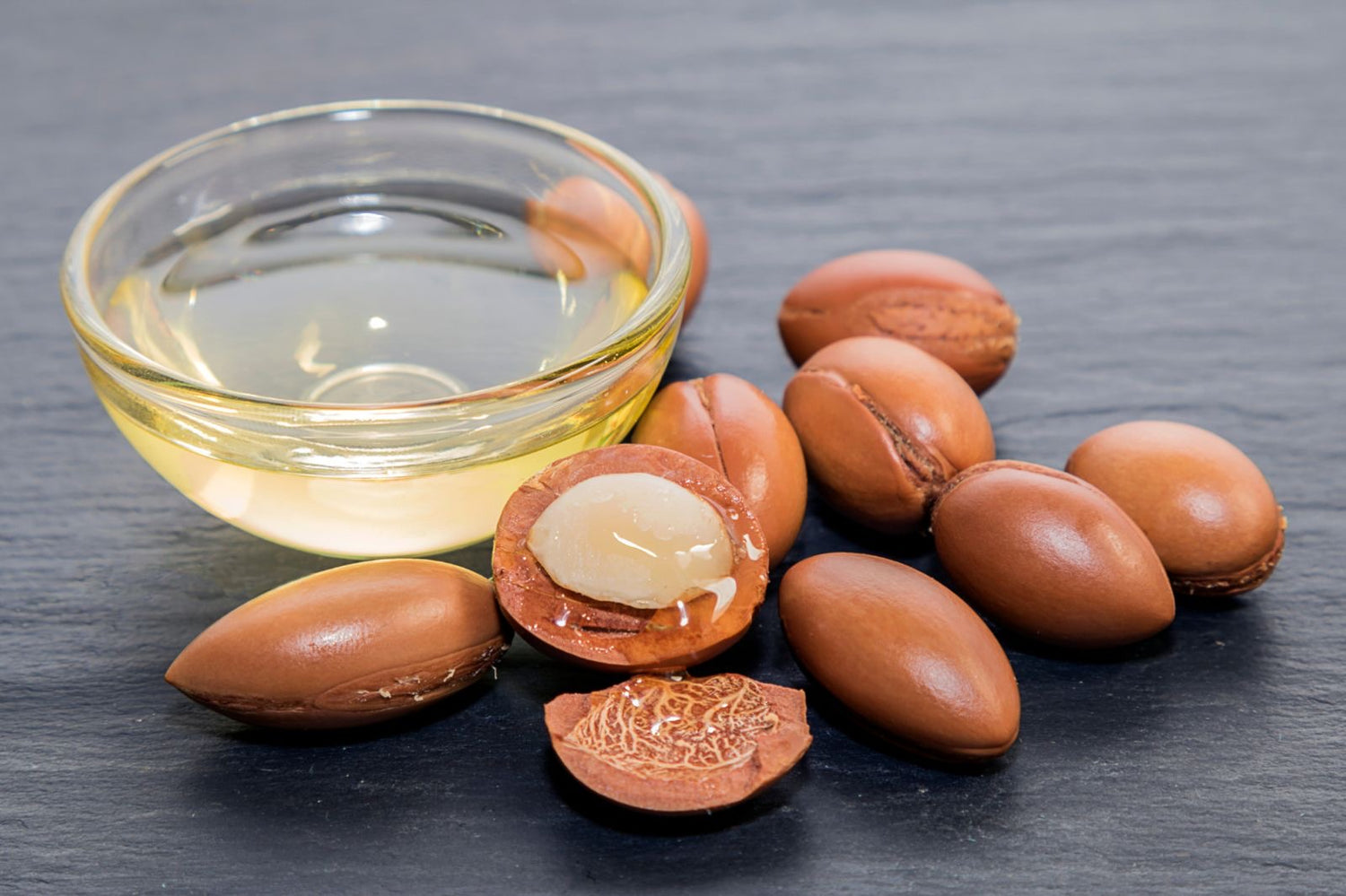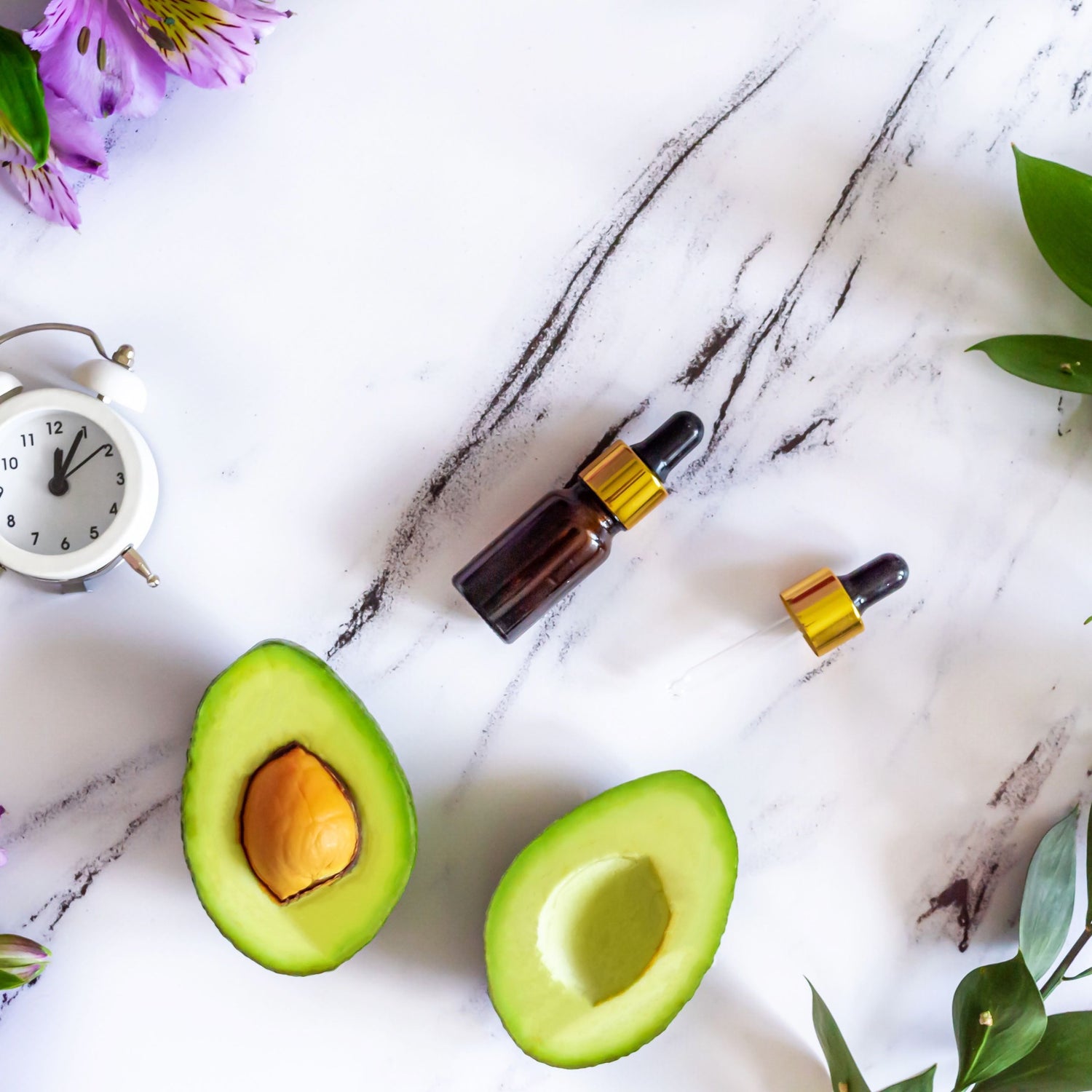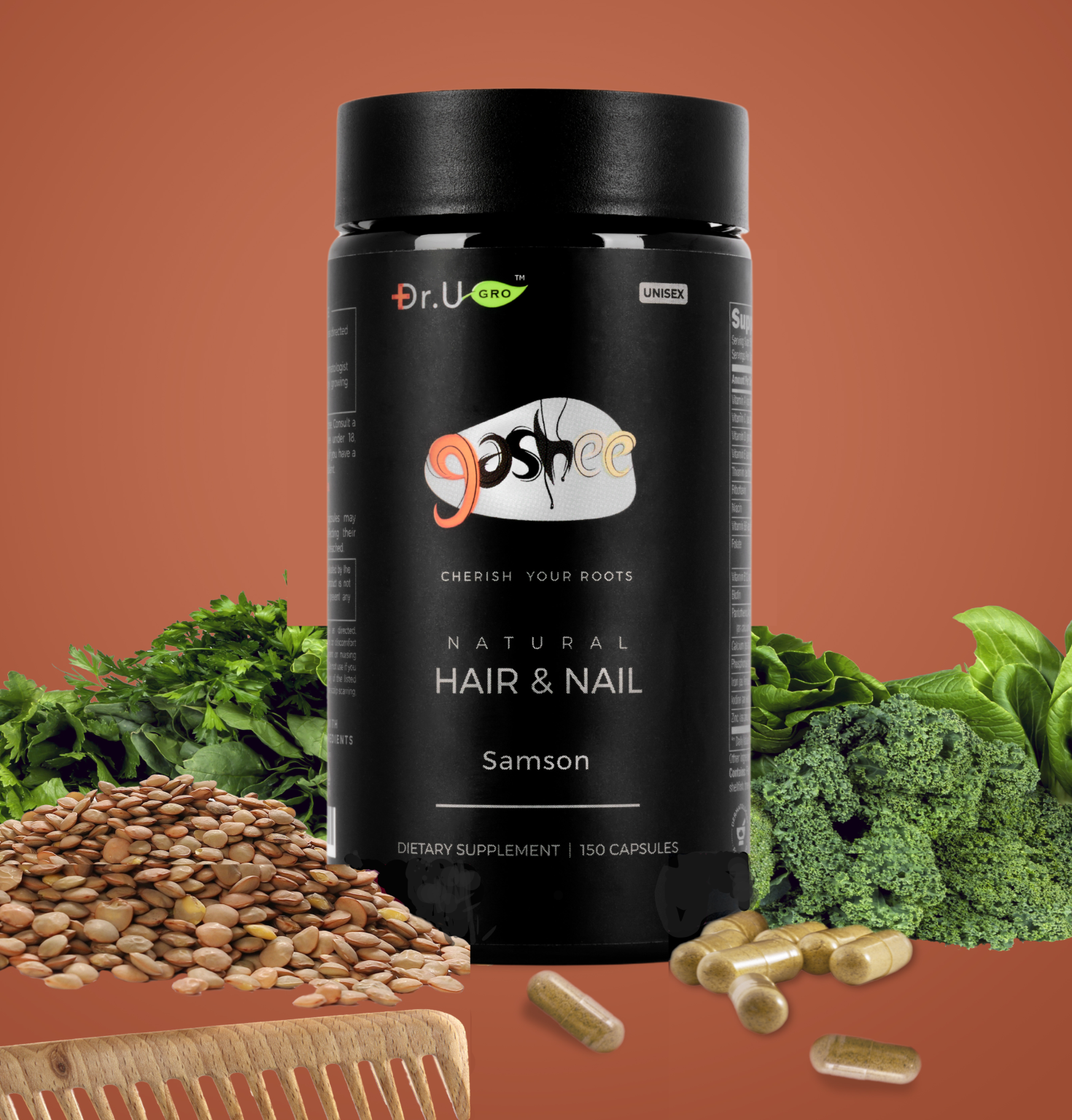What is Turmeric?
Turmeric, also known as Curcuma Longa, is known as a bright yellow-colored spice related to ginger and harvested from a perennial flowering botanical. The potential of using turmeric for hair follicle health is now being observed and considered by scientists for treatment mechanisms that involve the suppression of DHT (dihydrotestosterone) and TGF-B (transforming growth factor-beta), the promotion of angiogenesis, and the possibility of being used topically through cutting edge, selective drug delivery mechanisms. The turmeric plant has long been harvested for its orange-colored, aromatic rhizomes (underground stem) boiled and then dried. Turmeric has been used in various disciplines of Asian medicine, including Chinese, Ayurveda, Siddha, and Unani. Its medicinal properties are due to a compound known as curcumin, highly prized for its anti-inflammatory properties. 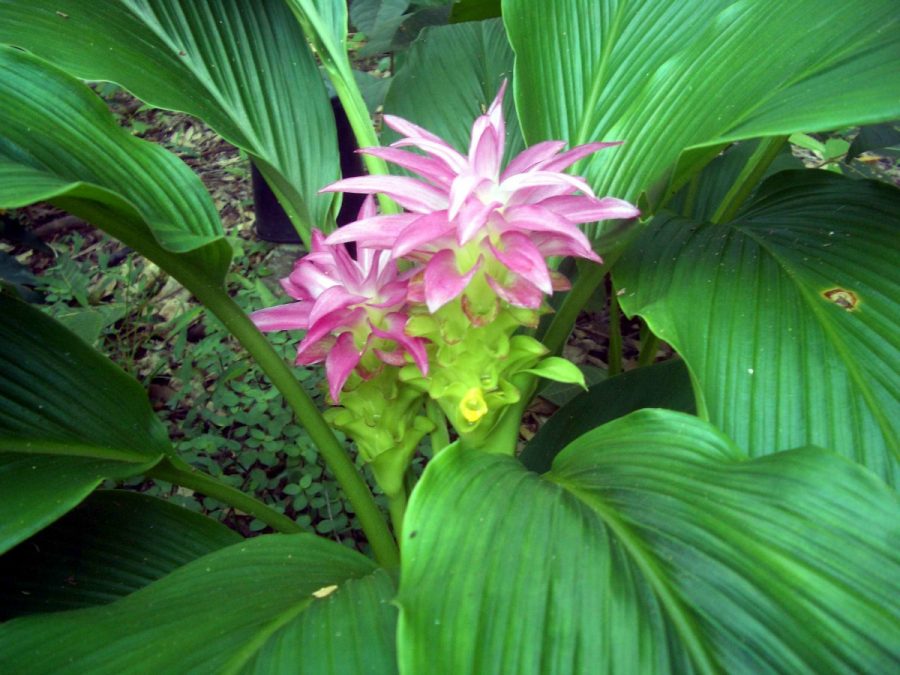
Studies on Turmeric Benefits for Hair
Modern researchers are now taking a closer look at turmeric's potential as an effective, non-synthetic treatment agent for hair loss.
Turmeric for Hair Loss as a DHT Inhibitor
Pharmaceutical hair loss drugs are currently designed to help manage the signs of androgenic alopecia by targeting the DHT pathway. Such treatment mechanisms operate by blocking the 5a-reductase enzyme, which metabolizes testosterone into dihydrotestosterone (DHT). Inhibiting this enzyme will lower the DHT levels in the blood. DHT's detrimental effects are seen in those with the genetics for pattern baldness. Due to their DNA coding, they produce more sensitive DHT receptors on the hair follicle. A group of researchers was interested in seeing if turmeric might block the 5a-reductase enzyme (1). They designed a treatment formulation using 5% concentrations of both turmeric and 5% minoxidil in hexane on eighty-seven male subjects suffering from androgenic alopecia who showed hair loss in the vertex. This mixture was compared with a placebo. Results:
- greater hair count
- significant photographic image comparisons
- positive assessments by the participants
After just six months of treatment, the researchers noted significant improvement in these three areas. The photographs and feedback by the subjects supported signs of growth and decreased shedding compared to the placebo. 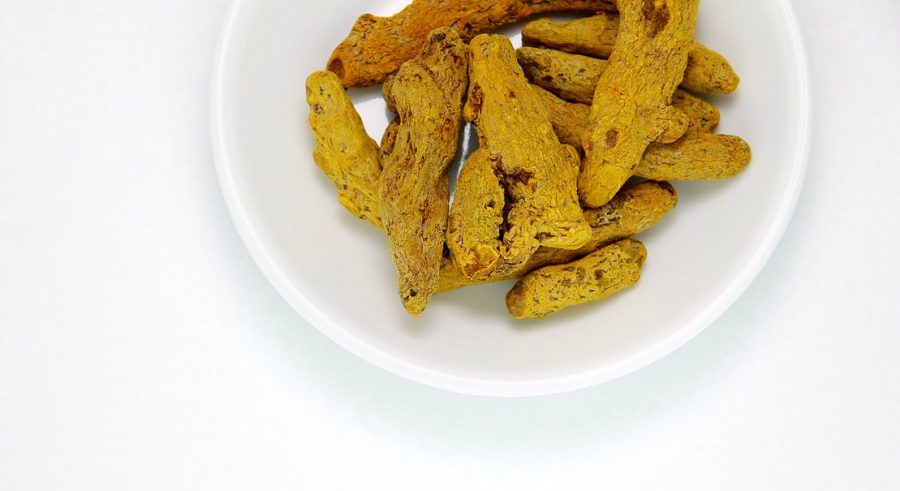
Turmeric for hair growth may work as a DHT inhibitor, blocking the enzyme that breaks down testosterone into dihydrotestosterone.
Turmeric for Hair Growth Through Suppression of TGF-B1
The role of DHT is just one of many hair loss pathways. It is related to another significant biochemical dynamic involving a lesser-known compound called TGF-B1. Studies have shown that DHT induces the production of TGF-B1 within the hair follicle. TGF-B1 then causes the death of hair follicle cells at the base, initiating the catagen phase, where the processes for producing hair start to slow down. Researchers are hopeful about creating new forms of hair loss treatments by addressing TGF-B1. They are also excited about the possibility of using plant-based, non-synthetic compounds to achieve this. In one study, turmeric for hair growth was observed for its ability to lower TGF-B1 levels by blocking the gene expression of this compound (2). The researchers designed a cell-assay experiment to deliberately produce TGF-B1 in human epithelial and keratinocyte cells (HaCaT). They wanted to see if curcumin could lower these concentrations of the transforming growth factor by designing a plasmid vector from circular viral DNA named pMedLuc-TGF-B1. The researchers inserted new gene sequences of interest, a promotor TGF-B1 (which starts creating TGF-B1) and an enzyme called luciferase to tag or indicate the presence of the TGF-B1 through bioluminescence. The genetically modified viruses infected the human cells with their DNA to insert the new gene codes. This is how the researchers controlled TGF-B1 production in human skin cells within their assay. Adding curcumin to these human skin cells downregulated the gene expression for TGF-B1 in a concentration-dependent manner. Turmeric may be able to treat hair loss by suppressing the transforming growth factor. 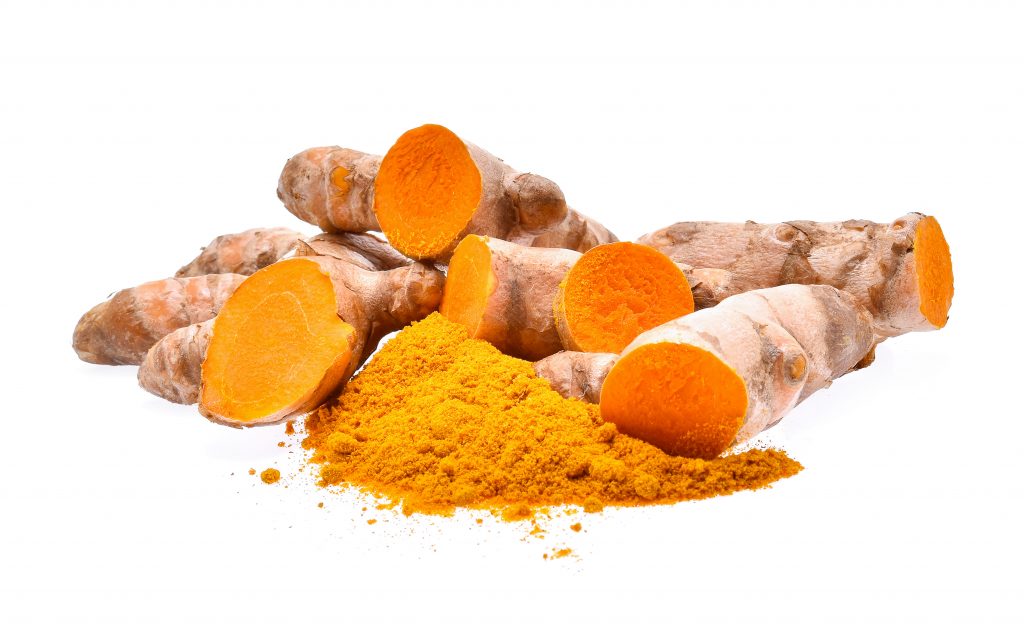
More than just a cooking spice, turmeric for hair loss is being studied for its ability to down-regulate TGF-B1 at the gene level.
Curcumin for Hair Regrowth May Promote New Blood Vessel Development
Besides TGF-B1 and DHT, blood flow is another area to consider in treating androgenic hair loss, especially when it comes to the miniaturization of hair follicles. A study on angiogenesis (the formation of new blood vessels) in mice observed the effects of a protein called VEGF, which promotes new blood vessel development. The VEGF treated mice displayed thicker and faster hair growth, with their hair volume about 70% thicker. Additionally, their hair follicles increased in diameter by about 30% after 12 days. The researchers also noted that their blood vessels became 40% larger compared to average mice. Turmeric for hair growth may also promote new vascular development according to a publication, Nutraceuticals as anti-angiogenic agents: hopes and reality. The author categorizes turmeric as a nutriceutical, a plant compound that may promote angiogenesis, defined as creating new blood vessels from an existing network of vascular pathways.
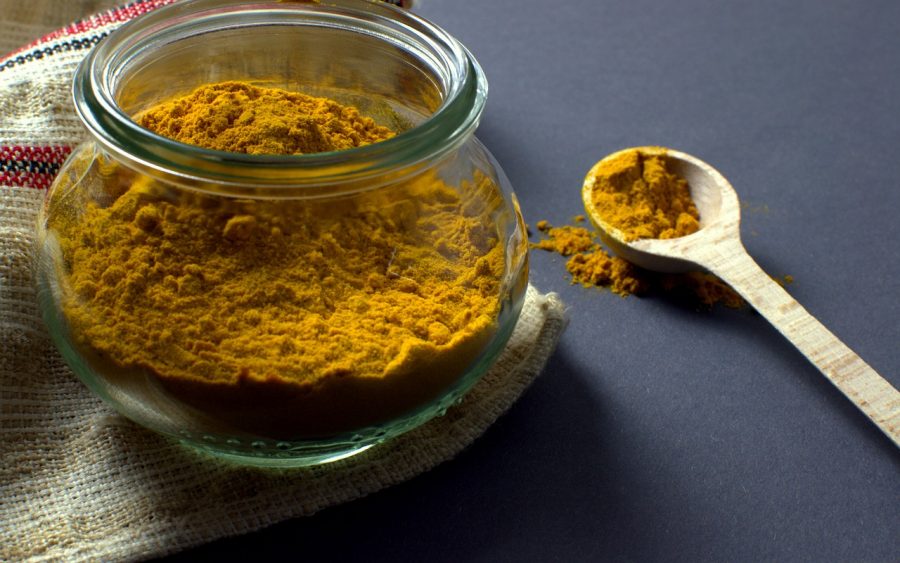
New blood vessel development, also known as angiogenesis, may explain turmeric benefits for hair follicles affected by miniaturization processes.
He specifies that organ development, ovulation, and hair growth all depend on angiogenic processes. While improving blood flow may result from increasing the diameter of blood vessels, it may be possible to also form entirely new vascular branches around hair follicles to enhance the supply of blood, oxygen, and vital nutrients to counter the effects of miniaturization.
A Study on Turmeric for Hair Follicles Within Drug Delivery Molecules
Cutting-edge medical research is developing drug delivery molecules to target hair follicles and sebaceous glands selectively. Compared to creams and ointments, these vehicles can deliver treatment compounds much deeper into follicular structures. In one research study, scientists observed the ability of cyclodextrin to deliver turmeric specifically to hair follicle structures in porcine skin samples. A fluorescent dye was used to trace the turmeric. These findings showed that cyclodextrin helped transport the turmeric to the internal root sheath, down to the base of the hair follicle. This study chose to use turmeric for hair follicles because it is a lipophilic compound and therefore compatible for use within the cyclodextrin carrier vehicle. Although the researchers did not test it for hair growth improvements, it represents a novel and innovative topical drug delivery system that can selectively deliver drug treatment molecules to hair follicles. Due to curcumin's ability to block 5a-reductase, lower DHT, and suppress TGF-B1, continued studies along these lines, especially within living organisms, may reveal new, safer, and highly effective ways to improve hair loss conditions.

Continued studies on curcumin for hair regrowth may offer new forms of natural treatment for those concerned about androgenic alopecia.
Other Uses of Turmeric
Turmeric is commonly known to be used to relieve various medical conditions, including hay fever. Consuming turmeric orally was proven effective in reducing symptoms associated with hay fever — including sneezing, congestion, runny nose, and itching. Oral consumption of turmeric can also lower blood fats level, which is referred to as triglycerides. Some researchers claim that the ingredient also aids in improving high cholesterol levels, but there were conflicting studies. Additionally, the herb may reduce pain around bones, especially for those with knee osteoarthritis. Aside from the benefits to physical health, several types of research show that the chemicals found in turmeric reduce signs of depression for those using antidepressants. Its effect to boost moods can be a great natural source for individuals seeking to release tension.
Potential Side Effects and Concerns
For most adults, turmeric is safe to use when consumed orally or applied to the skin. However, it is recommended to take normal doses of this ingredient for a short-term period — usually around three months. Though it is not likely to cause side effects, some individuals may experience minor effects, including nausea, diarrhea, and dizziness. According to WebMD, these side effects are more identifiable when taken in high doses.
Safety Profile
The Environmental Working Group scored turmeric a 1 (green) on its safety hazard scale, indicating that the ingredient presents little to no concerns when used in beauty or food products.
Effective Hair Products with Turmeric
If you haven't already, turmeric is an important ingredient to add to your hair care routine. Luckily, Dr.UGo Gashee has you covered with its all-natural hair growth products that are tested and approved to be effective. Carefully formulated by Dr. Sanusi Umar, a dermatologist and hair transplant specialist, Gashee hair products boost your hair health while deeply moisturizing and nourishing your scalp and roots. Our hair lotion and pomade ensure improvement in your hair growth journey using a combination of all-natural ingredients. Click the image below to shop now.

Frequently Asked Questions
Is it possible to benefit from oral supplements of turmeric for hair growth?
Although oral turmeric supplements are widely available to consumers, it is important to look for evidence showing that they can produce specific goals like hair growth. There are no controlled research studies or anecdotal forms of evidence that support the use of commercial oral turmeric supplements to grow hair universally across all individuals. These products are best considered for general health purposes.
I read that turmeric benefits for hair include dandruff since it is an anti-inflammatory. Can it also work for hair loss due to inflammation?
Curcumin in turmeric can destroy microbes to help reduce inflammation. This may be viable for hair loss cases where bacteria or fungi cause inflammation. Eliminating these organisms is more likely to ameliorate hair loss in these types of situations. Hair loss should be assessed individually to determine the right treatment approach. Rather than relying on turmeric consumption, talk to a qualified physician to see if your scalp inflammation coincides with genetic hair loss. Instead of oral turmeric supplements, you may want to investigate carefully formulated products that incorporate turmeric to target scalp and hair follicle health.
Will taking curcumin for hair regrowth actually work on certain types of hair loss?
There are certainly many different types of hair loss conditions and stages. And it is important to recognize these types of variations than thinking of hair loss as a universal condition that manifests in the same way across all individuals. When hair loss or unwanted shedding is primarily due to environmental factors, as opposed to genetics, there is usually a greater chance of seeing desired changes by improving the health of the scalp environment. Since most oral supplements promote general health, you may want to consider more focused applications using well-formulated topical blends which foster better scalp health to benefit the health of hair follicles.
References
- Pumthong G, Asawanonda P, Varothai S, et al. Curcuma aeruginosa, a novel botanically derived 5α-reductase inhibitor in treating male-pattern baldness: a multicenter, randomized, double-blind, placebo-controlled study. J Dermatol Treat 2012;23(5):385-92.
- Huh S, Lee J, Jung E, et al. A cell-based system for screening hair growth-promoting agents. Arch Dermatol Res 2009;301(5):381-5.
- Detmer M, et al., Blood Vessels Hold Key to Thicker Hair Growth, Science Daily, 2001.
- Dulak J. Nutraceuticals as anti-angiogenic agents: hopes and reality. J Physiol Pharmacol 2005;56 Suppl 1:51-67.
- Konrádsdóttir F, Ogmundsdóttir H, Sigurdsson V, et al. Drug targetting to the hair follicle: a cyclodextrin-based drug delivery. AAPS PharmaSciTechi 2009;10(1):266-9.


